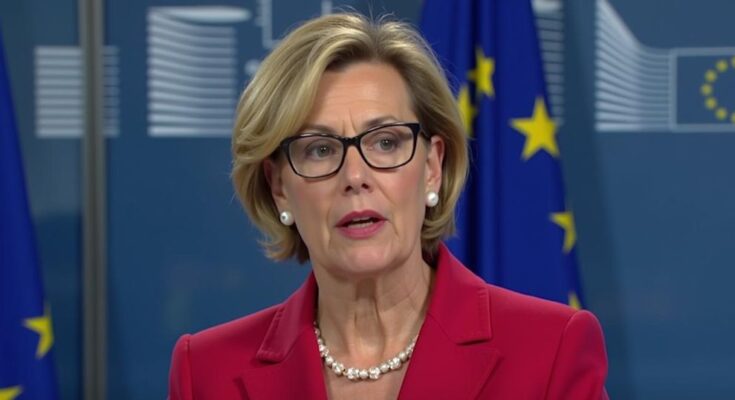A Greek official has criticized the EU for failing to create a unified policy for migrant deportation amidst increasing global displacement due to war and climate change. The new migration pact lacks essential components, and Greece continues to face significant challenges as a primary entry point for migrants. Concurrent developments in Italy and Poland indicate broader tensions in migration policy across Europe.
A Greek government official has publicly voiced concerns regarding the European Union’s ineffective migration policies amidst escalating global displacement due to armed conflicts and climate-related issues. During a conference near Athens, Deputy Minister for Migration Sofia Voultepsi criticized the European Commission for its inability to establish a unified strategy for the repatriation of migrants. She stressed that the recently agreed-upon European Union migration pact, expected to be implemented in mid-2026, lacks essential components necessary for its success, specifically a cohesive system for asylum processing, returns, and integration of migrants. Voultepsi expressed urgency in addressing the surge of refugees from conflict-affected regions, citing particularly the situation in Lebanon due to ongoing hostilities, as well as the broader implications for countries like Somalia, Ethiopia, and South Sudan, which are grappling with the dual crises of war and climate change. Greece remains a pivotal entry point for migrants entering the European Union, predominantly through perilous voyages from Turkey and Libya. In a related incident, the Greek coast guard has reported the rescue of 81 migrants stranded on a vessel during a journey towards Italy, highlighting the ongoing challenges of migration across the Mediterranean. Broader developments in Europe include an Italian navy ship expected to process asylum claims for 16 migrants intercepted in international waters at an Albanian port, and Poland’s Prime Minister Donald Tusk’s proposal to temporarily suspend asylum rights, pending parliamentary approval. These events underscore the urgent need for a collaborative and systematic approach to migration management across the EU.
The topic of migration has become increasingly prominent within European politics, particularly as conflicts in the Middle East and Africa, along with climate change, have led to significant increases in global displacement. The European Union has recognized the need for a coordinated response to manage the influx of migrants while ensuring that humane treatment and asylum policies are upheld. Recent policy efforts have culminated in the establishment of a new migration pact which is currently undergoing debate among member states. Greece, as a frontline state in the migration crisis, experiences the brunt of this issue, resulting in heightened calls for effective solutions to tackle the challenges of migrant integration, asylum processing, and repatriation.
In summary, the remarks by Deputy Minister Sofia Voultepsi reflect a growing frustration with the European Commission’s inability to implement a cohesive migration policy that adequately addresses the complexities of current global displacement factors, such as war and climate change. The situation in Greece serves as a critical case study of the ongoing crisis, where the lack of a functional returns system creates hurdles for broader European migration management. The emergence of additional restrictive migration policies across other European countries illustrates the burgeoning tension surrounding the migration discourse in the region, underscoring the necessity for collaborative action and comprehensive policy frameworks to address the humanitarian and logistical challenges at hand.
Original Source: www.independent.co.uk




